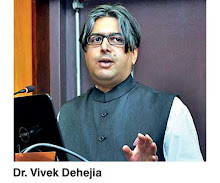Now, as a matter of economic theory, this criticism is valid, unless a case can be made that the auto industry generates a positive externality (or, perhaps, plural positive externalities) that are not captured by the market. This is textbook economics from a first year principles course. One such externality might be an employment-related one. If we are indeed in a Keynesian-type situation with below full employment, preserving existing jobs may confer benefits on society greater than the private marginal product of the last person hired would suggest. As it happens, this is one of the oldest quasi-legitimate arguments for protection in the book, going back to the work of Gottried von Haberler in the early part of the last century. I say quasi-legitimate, because the "targetting" principle of Bhagwati and Ramaswami suggests that the best intervention would be directly in the labour market, not using tariffs or trade barriers as a proxy to preserve employment.
But frankly all of this misses the point entirely. When economistic critics say that the US administration is stupid to be bailing out the auto industry. they are revealing their own stupidity. Economic policy is not made by economists, it is made by politicians. Politicians who like to get re-elected. In other words, there is a political economy of the putative auto industry bailout, that is at least as important as the pure economics of it. If you were the government of the US or Canada, would you let thousands of people in pivotal electoral states (and provinces) such as Michigan, Ohio, and Ontario lose their jobs and vote against you in the next election? Now, doing that would be truly stupid for any politician. Good politics, of course, doesn't always make for good economics, but that's a tale for another time.

No comments:
Post a Comment